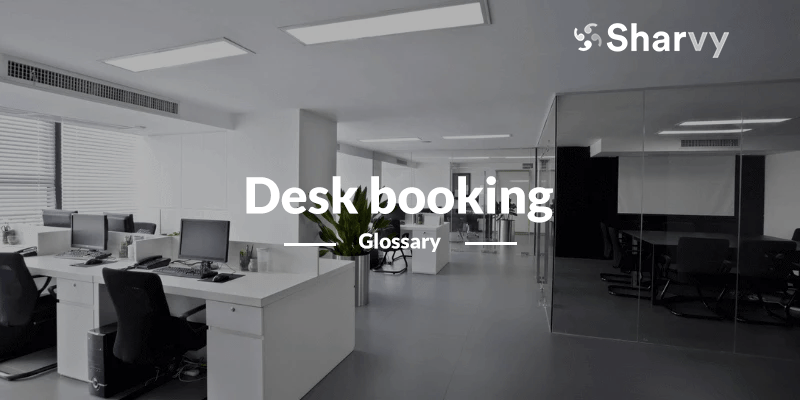What is desk booking? – Definition
Compared to the “classic” organization of work, the flex office has brought a wind of freedom to companies in recent years. It is a mode of organization in which no office is assigned to an employee.
In principle, both employees and companies benefit from this. However, this statement is only true if companies manage to:
- Determine a good occupancy rate. In other words, an adequate and justifiable ratio between the number of available workstations and the number of employees.
- Deploy/integrate a tool that makes it easy for their employees to find a workstation, so that it is not a mad dash every morning to the best place.
To achieve this, there are various “Desk Booking” tools. With these tools, employees anticipate their arrival on site and indicate in advance whether they wish to obtain a workstation, on what date, and for a full or half day.
Once the request has been made, and after a few minutes, the tool will assign them an office number and indicate their location in the company. This is done according to an algorithm and usage rules defined beforehand by the solution administrator.
On the day, the employee goes to the assigned workstation and checks in (via a QR code, for example) on the desk booking tool settings.
Is desk booking suitable for all companies?
Implementing an office booking system is justified for companies that wish to adopt and succeed in their transition to the flex office and those considering opting for a hybrid organization model.
For example, we can think of companies that choose desk sharing, smart office, hot desking, or desk hoteling. In other words, organizational models combine teleworking and face-to-face work, where no workstation is assigned to an employee.
These models are often seen as essential for combining performance and well-being at work while fostering a positive corporate culture. However, they can only deploy sustainably if a desk booking tool is in place.
Therefore, desk booking is suitable for all companies that opt for these new, more “nomadic” and flexible work organizations. This is true regardless of the size of the company, the sector of activity, and/or the geographical area.
Using a desk booking tool: what are the advantages for companies and employees?
For employees, it allows them to:
- Book a workstation independently at the location and date of their choice
- Filter and select an area and/or workstation according to their preferences
- Reduce the stress associated with the uncertainty of obtaining a workstation
- Facilitate their daily life and anticipate the organization of their working week
- Work in a variety of environments that stimulate their creativity and productivity
For companies, it is also a way to:
- Define rules of use and good practices for the allocation of workstations
- Monitor the occupancy rate of premises and produce statistics thanks to this tool
- Stimulate collaboration by offering meeting/co-location rooms for booking
- Reduce real estate costs by opting for smaller but better-optimized premises
- Attract new generations who expect new ideals (flexibility & freedom)!
How to Measure the Effectiveness of Desk Booking Within an Organization?
Evaluating the effectiveness of desk booking within an organization requires a thorough analysis based on specific criteria. Here are some key elements to consider when measuring the impact of this practice on productivity and operational efficiency.
One of the first indicators to consider is the optimal use of workspace. This involves assessing the frequency of desk occupancy, the reduction of underutilized spaces, and maximizing the overall capacity of the facilities.
Employee satisfaction is also an essential barometer of desk booking effectiveness. Regular surveys, feedback, and evaluations of employees’ perceptions regarding the flexibility offered by this practice help measure its impact on workplace well-being and team motivation.
In parallel, analyzing the costs associated with workspace, such as lease management, facility maintenance, and energy costs, provides a financial perspective on the effectiveness of desk booking. Similarly, the ability to adapt to organizational changes is a crucial aspect of desk booking effectiveness. The ability to quickly adjust desk configurations in response to company developments, teams, and projects demonstrates the operational flexibility that this practice can offer.
Finally, the individual and collective productivity of employees can be assessed based on the implementation of desk booking. Observing performance, delivery timelines, and goal achievement indicators helps establish a connection between efficient workspace use and the overall performance of the organization.

